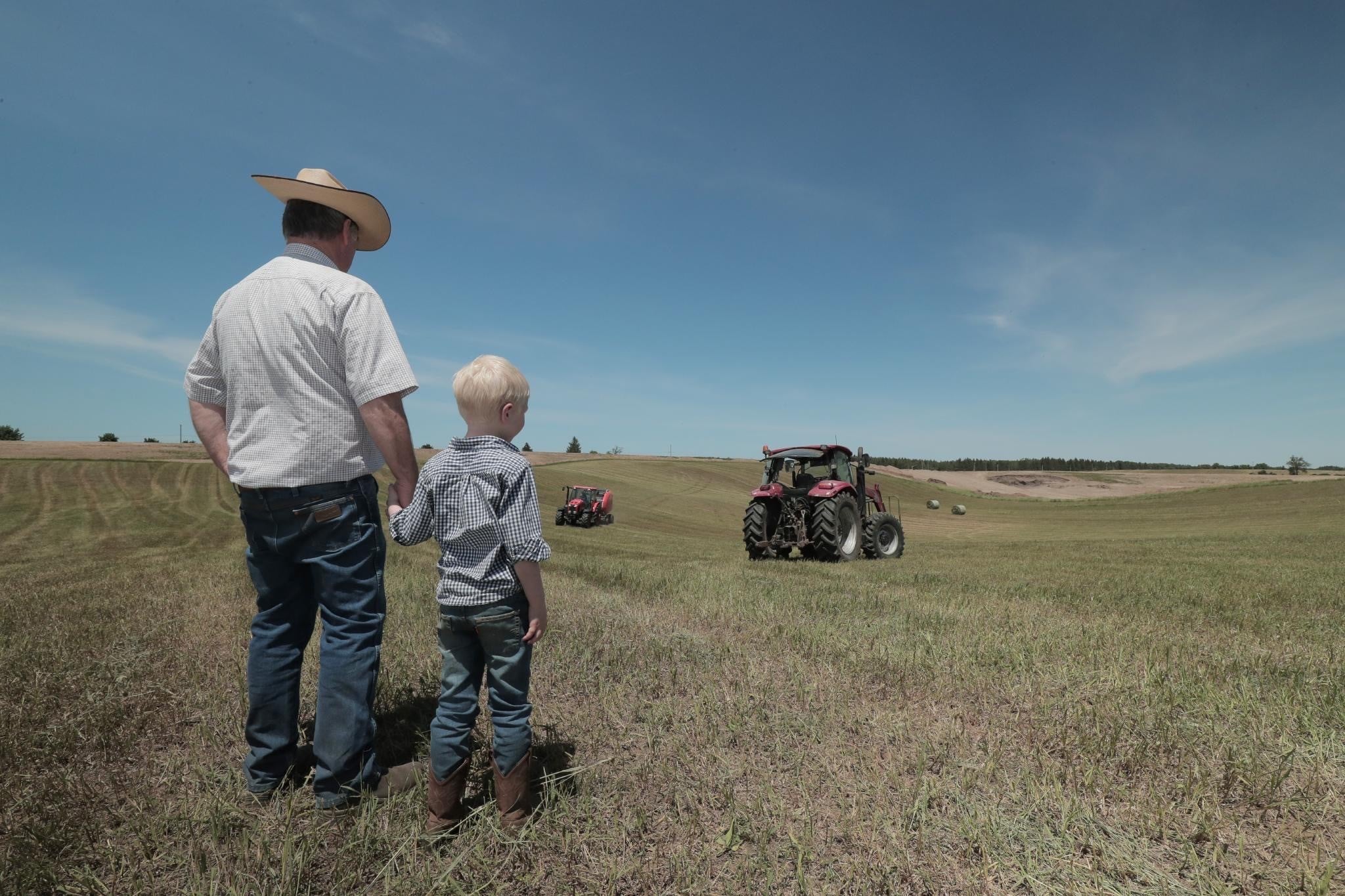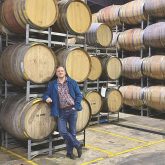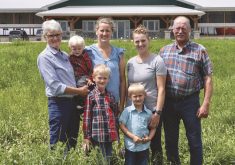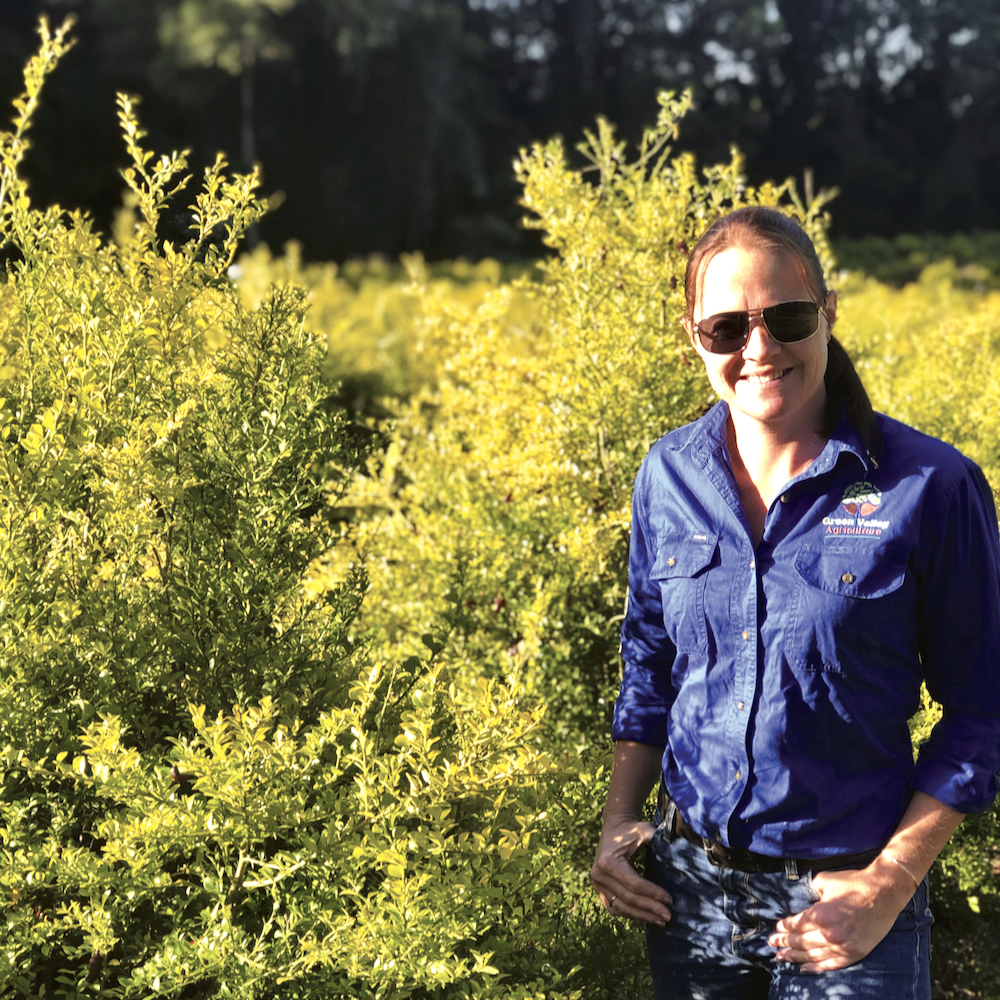It is well known that Canadian farms are limited by labour shortages. Pre-COVID-19 studies say Canadian farms already faced a labour gap of 63,000 positions in 2018, set to increase to 123,000 within this decade, and research by the Canadian Agricultural Human Resource Council (CAHRC) estimates that labour shortages during COVID-19 pandemic resulted in $2.9 billion in lost sales, equivalent to roughly 4.2 per cent of the sector’s total.
With statistics like these, it’s easy to say that attracting and retaining farm staff is critical. You can have all the great business and farm ideas in the world, but if you can’t put boots in the field or the barn, that’s all they’ll ever be … ideas.
So how do you make your farm a farm that attracts the best employees and makes them want to stay?
Read Also

Where convention and innovation meet
How one Ontario farm is integrating technology into their beef operation.
Is that even a reasonable or an achievable goal?
Nuffield Scholars who farm around the world have studied exactly those questions, generating global perspectives and insights into what is actually working on real farms to keep their farms well-staffed, humming and productive.
Below, we bring you learnings and insights from two of these farmers, and how these farmers turned them into go-forward strategies.
Reece Curwen,
Australia
Reece Curwen, from South Stirling in Western Australia (four hours south from the capital Perth), came to the realization that his 25,000-acre grain and sheep operation was losing 30 per cent of its staff team every year.
Curwen is the manager of Tooraweenah Pastoral Company, and while doing a business analysis, he saw that his farm does have a number of strengths. It’s diverse, self-sufficient and flexible, and it integrated livestock and cropping. But it also had a major weakness on human resource issues.
The farm had an unstable work force, suffered from a lack of non-family leaders and was overly reliant on foreign labour.
For his 2015 Nuffield Scholarship, Curwen investigated how others attracted and retained their best employees. Over two years, he met 120 top farmers and agricultural professionals in 16 international locations including the United States, Canada, Brazil and Europe.
What did he learn?
Among companies with long-term employees, two major factors became clear. First, for employees it was critical that they be part of a successful and stable team that sees them as people, and not just a means to business profit.
The second key learning was that younger employees are looking for very different things in a career. Newer generations of hires are increasingly looking to ensure a life-work balance and to seek out new challenges.
That aligns with research showing generation Yers will average more than four careers in their lifetime, and they typically only stay in a role two years before seeking something new. They are also highly attracted to successful businesses and people.
Following his travels, Curwen implemented a human resources plan, including the hiring of a HR coach who visits the farm six times per year, in line with his finding that business issues are sometimes better addressed by an external source.
With harvest being the farm’s busiest time of the year, pre- and post-harvest plans are important and need to be adopted by the full team. Pre-harvest planning outlines the situation, and includes devising an execution plan. Post-harvest, that plan is reviewed and-methods on how to improve in the following year are talked over by the whole staff. Curwen has found that brainstorming as a team has been very powerful as it helps provide staff with a sense of involvement in critical business decisions.
Curwen also evaluates his own leadership skills. “I see it as critical that the family leads by example.”
He gained other key insights, too. “With the right tools in hand we try to inspire others to work with and not just for the family,” he says.
And, he adds, “Achieving the goal we set as a team gives me a buzz. While I don’t like the awkward, uncomfortable and difficult discussions, I’ve realized those are absolutely critical as a leader. They help to us to learn, and help me to support those changes.
“To me a leader is like a coach who hopefully awakens employees to new possibilities in their potential. I want to empower my team to make good decisions and build their leadership skills too.”
Curwen adds “I’ve realized people are the most critical element to business success. Without good people, there’s too much pressure on the farm family. And it is much easier, and cheaper to retain good people than to try to find new employees, especially when most Australians don’t want to work on a farm, and it is unsustainable to rely on foreign and temporary workers.”
The changes Curwen has made have been highly successful. He credits leadership programs like Nuffield with helping him develop new skills and to meet “amazing people doing cool things.”
Hamish Murray,
New Zealand
Hamish Murray is another Nuffield international scholar who learned to motivate and retain his staff through time away from his New Zealand farm, although in his case it was not by choice, but rather circumstance.
His operation, Bluff Station, located in the Clarence River Valley on New Zealand’s South Island, is impressive. The diversified operation covers 13,800 ha (approximately 34,000 acres) and includes 9,000 merino ewes, 950 Angus and Hereford breeding cows and 750 bee hives.

The farm itself covers 130 different blocks over 35 km and ranges from 40 metres above sea level in the valley to 650 metres in the high hills.
But as we know, numbers can be deceiving. Two years of severe drought, coupled with a devastating earthquake that forced him to rebuild six houses and the majority of infrastructure on the farm, had left Murray emotionally and mentally drained.
Encouraged by his family to seek professional help, he began what has become a life-long journey of self-discovery. Like Curwen, Murray first critically evaluated his strengths and weaknesses. With the help of a professional coach from outside the farming world, he realized he had a major issue he was going to have to deal with, probably one he shared with loads of other farmers around the world.
Murray had an inability to delegate or to trust others to solve problems. (Sound familiar?)
It was an unsustainable leadership style, so for his 2019 Nuffield study he looked at how the employer-employee relationship needed to evolve in the workplace. “I was able to discover how industries from computer game development to health care and professional sports address the changing values and expectations of today’s workforce, allowing greater engagement and motivation from employees,” he says.
The list of companies he visited is impressive and ranging from the Crusaders, a Super League rugby team to Patagonia, the American-based outdoor-life retailer, and also included design firms, tech companies and startups in Silicon Valley such as Lyft, Square, IDEO, Granular, and Google.
Throughout all of his visits, it became clear that the constant key to these successful businesses was their focus on “soft skills” and shared values.
Soft skills are things like the way you communicate, make decisions, reflect and give/receive feedback as a team. Leaders need to be self-aware. Managers need to find out how their team members want to receive feedback and instruction.
Says Murray, “Success means making an effort to understand why people are the way they are, what are their motivations, passions, priorities and goals in life. We need to look at the whole person, not just the employee. Time invested in people is time well spent as the cost of hiring and training new staff is extremely expensive.”
Also like Curwen, Murray notes that there are major differences between younger and older staff. The older ones are better prepared for a “top-down” style of leadership, while younger generations prefer to collaborate as a team.
Murray also learned about the importance of what is termed “psychological safety.” It is the shared belief held by all members of a team that the environment is safe for them. It is the sense that the group will not embarrass, reject or punish them for speaking up.
This requires trust and mutual respect, and it allows members to be comfortable being themselves. It’s critical within any type of team, Murray believes, and he works hard to create a safe space for feedback. Returning from his Nuffield travels with a new management philosophy, Murray quickly began implementing what he had learned within his team, consisting of his wife Jess, his parents as well as two hired beekeepers, a general hand, a stock manager, shepherd and machine operator.
“While we’re all busy and often spread over a two-hour distance, I realized face-to-face communication is not only necessary, but also critical. We can’t rely just on texting, or phone calls with our staff. It’s critical that we all, not just us owners, but all team members learn about people’s families and passions. We must build trust and relationships around those things. Because when the chips are down, the team attitude is what keeps people working towards the same goal, together.”
Shared values by which all decisions are made are highly integrated into all of Murray’s activities. New employees are told of the values in their first job interview, and long-term staff members are continually reminded of them.
The four core values are:
- Stand together and celebrate success
- Back yourself and own your choices
- Have fun
- Be your best self
“During my personal journey, and my Nuffield Scholarship, I learned that people want to solve their own problems and it’s a matter more of helping them ask the right questions … I’m now about empowering everyone to move forward. It allows me to stand back and let the others lead.”
The farm has one or two team sessions each year to look at themselves and refresh their values, but every morning they also have what New Zealanders call a “Smoko.” “It’s our 10 a.m. break for a “cuppa” (of tea) and maybe a scone. Everyone who is in the area is welcome to join. I try to create a culture where we want to hang out with each other.”
Murray goes on to note though that finding a balance between being a friend as well as a boss is difficult. One of his set boundaries is that dinner with his family is a “no call” time. He also sets certain days or times of the year aside where he can get away, whether it be for a bike ride, or a family holiday.
After the stress of recent years, he knows this is of utmost importance. Since the station is so isolated in the hill country and everyone lives on it, he also tries to employ couples to ensure that they have a balance and personal happiness too. Is it working for Murray? The answer is yes. “We have a very stable staff structure with minimal turnover now,” he says.
Keys to an empowered, loyal and motivated team
Delegate responsibility to others. Very few businesses have a completely happy staff team, but the most successful ones are those whose employees feel empowered and appreciated.
Develop a shared vision, core values and team goals upon which management decisions are based. Communicate these regularly.
Implement a RACI chart — also known as a responsibility assignment matrix. This is a simple roles-and-responsibilities diagram used in project management. A RACI chart defines whether the people involved in a project activity will be Responsible, Accountable, Consulted, or Informed for a corresponding task or decision.
Empower your staff and give them responsibility, as well as the opportunity for growth.

Hold regular, in-person meetings to ensure employees understand the why and the how of decisions being made and to gather their input as much as possible. Consider bringing in external advisors on a regular basis. They can help to resolve issues objectively as well as bringing an outside perspective to problems or questions.
Treat your people like you would want to be treated. Understand their visions, passions, families, goals. Create some fun, non-work events where families can be involved. Most importantly, be a part of the team. Your staff needs to be seen as an investment rather than a cost.
The next generation of people think differently than the baby boomers. Understand what makes them happiest. Create a culture in which they thrive.
Promote your business and industry. Your business needs to become the employer of choice so that people are approaching you for positions, and staff members are proud of where they work. Understand that the success of a business is a function of how effective you are at employing the right people and cultivating the right attitude. Success attracts people.
Creating a happy team is about culture. Learning to be a better manager by developing HR and leadership skills for your farm team is well worth the investment.
* With input from Nuffield farmers Reece Curwen (Australia) and Hamish Murray (New Zealand), and Heather Watson, FMC
Canadian options
In Canada, Farm Management Canada’s executive director Heather Watson says many farmers come into their leadership program because they feel they have reached their limits.
“They want to achieve more, but feel they are maxed out by workload pressures and lack of time to get the work done,” Watson says. “Realizing the value of cultivating better relationships with their farm team and reaching for outside support allows them to achieve more and build a crew pulling in the same direction and infused with the passion and desire to achieve results.”
Surveys show, though, that most farms are missing out on key opportunities with human resource management and with leadership skills and practices.
It’s understandable. Family businesses typically evolve from a passion for the work they do, Watson points out. Only later do they find that in order to thrive, they need to take a business approach to ensuring the farm and farm team are positioned for success.
The good news is that Canadian farmers have several options for developing their leadership and management skills. Many commodity groups and agricultural/rural organizations and businesses have opportunities for their members and staff, such as the BUILD Leadership Development program, initiated by the Beef Farmers’ of Ontario and delivered by the Rural Ontario Institute (ROI). ROI also runs many other leadership programs including the highly successful Advanced Agricultural Leadership Program (AALP). Nationally there are programs including the CTEAM program available from AME to help producers build their business acumen and the National Farm Leadership Program from FMC which helps producers build their capacity to lead the team while ensuring their personal and professional goals are being met. For more specific skills, look to short-term courses available at many agricultural and community colleges, or think outside the industry and encourage team members to volunteer within their communities. Also check out the Canadian Agricultural Human Resources Council. It has an the AgriHR Toolkit for building HR capacity.
Away from the farm
Nuffield forces farmers to take time away from their farms. It turns out, though, that this often has an upside. Potential scholars see the difficulty in taking time away, especially in blocks as long as six weeks and sometimes longer, yet they always return impressed by the dedication, hard work and skill of those who managed their operation in their absence.
Many discover their staff have talents far beyond what their normal job entails. With the “boss” being away, workers are challenged to learn new skills, take ownership, problem-solve and become leaders.
Farm Management Canada’s Heather Watson sees the ability to take time away from the farm as a sign of good management practices and business acumen. “Many farmers are brought up believing they have to be all things to all people, and the success of the farm rests solely on their shoulders. They find it very difficult to delegate to their team members, but in reality, this limits the capacity of the farm to grow and also limits the capacity of the farm team to grow and develop as well.”
The national Healthy Minds, Healthy Farms study conducted by FMC in 2020 found workload pressure is a huge stress for farmers (it follows only unpredictable markets and weather). As Nuffield scholars have found, though, farm stress is relieved when farmers can count on the support of their farm team and family to share the load, especially when making important management decisions. This in turn depends on creating a culture of teamwork and personal and professional development.















